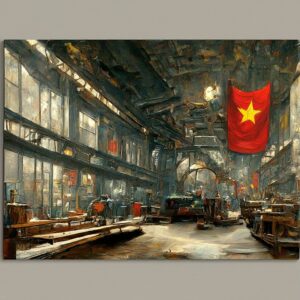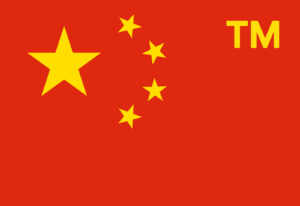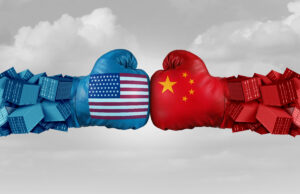Every day for the last week I have gotten at least one email from a foreign company that paid money to a company in China and got literally nothing in return. The term for this is theft.
This sort of thing is a given by Chinese companies and for why this is so prevalent lately and what you can do to protect against this, check out China Manufacturing Risks are Sky-High Right Now. Act Accordingly. We write about these risks often here, but that is not the topic of today’s post.
Today’s post is about the flip side. Today’s post is about foreign companies that get product from China and do not pay for it. How do these companies accomplish this and how common is this?
My law firm’s manufacturing and litigation lawyers actually see the flip side of this quite often as well, but more like once or twice a month, though these numbers seem to be rapidly increasing as well. And virtually all of what we see has not been planned. It is something that happens when the foreign company encounters financial difficulties that make paying its Chinese counter-party difficult or impossible or when there is a dispute regarding the quality of what the Chinese counter-party was to have provided — usually a manufactured product. What happens in these situations?
Not paying Chinese companies and getting away with it is actually quite easy. And when I say easy, I mean that of the 25+ times the international litigators at my law firm have represented foreign companies on such matters against Chinese manufacturers or against Sinosure (China’s government-owned export insurance company), not one single time has the Chinese company or Sinosure ever actually sued our client. Not once.
Why are Chinese companies so reluctant to sue foreign companies that do not pay for product? There are a ton of reasons, including the following:
1. Chinese companies tend not to like or trust foreign countries.
2. Chinese companies tend to be fearful of foreign courts. Who isn’t?
3. Chinese companies and the Chinese government often have a lot to hide. They understand that lawsuits in most Western countries (this is doubly true for the United States) will require they reveal information they do not want to reveal.
4. Foreign courts conduct their business in a foreign language. This makes things difficult on Chinese companies.
5. Foreign courts typically require companies use locally licensed lawyers. Chinese companies tend not to know or trust lawyers outside China.
6. Locally licensed lawyers in countries like the United States or Spain are not cheap and litigation is also not cheap and Chinese companies tend to be reluctant to spend money on services. Chinese companies tend not to be willing to pay — not hourly, not flat fee, not mixed fee, and not even on a contingency fee basis — what it takes to hire competent counsel to pursue international debt collection matters.
7. Lawsuits in most countries are public affairs. Chinese companies tend to prefer operating in secret.
8. It is the rare Chinese company that uses high end international lawyers for their contracts. This means their contracts tend to be very weak outside China and this can turn what should have been a fast and easy and cheap case into a time-consuming and difficult and expensive case.
9. Chinese companies tend to view not getting paid as embarrassing. This is particularly true if the reason the Chinese company did not get paid might involve claims against the Chinese company for acting dishonestly or incompetently.
10. Because it is difficult to collect on debts in China, Chinese companies tend to assume the same is true elsewhere as well.
11. Bankruptcy in China virtually always means creditors get nothing. Chinese companies tend to assume the same is true elsewhere.
12. Companies in China that are going out of business will often take payments from foreign buyers and then provide nothing in return (see above and see China Business Scam Week, Part 2: Bricks for Products). Chinese companies tend to assume the same is true elsewhere. Why pursue a company overseas that no longer exists?
My law firm has many times represented both Chinese companies on litigation matters outside China and companies sued by Chinese companies outside China. Our conclusion from these cases is that Chinese companies generally do not understand international litigation, do not understand the costs of litigation, do not understand what it takes to prevail in litigation, and — most importantly — do not have the “staying power” or financial commitment to pursue litigation or arbitration for the length of time it takes to prevail. We are not the only foreign lawyers who believe these things and I say this because many lawyers sued by Chinese companies know to basically just stall them until they give up.
Then there is the whole State Owned Entity (SOE) “thing.” When a Chinese state-owned company has turnover in its senior management (which is common for SOEs doing badly due to not getting paid), the successor management often does not want to bother going after unpaid debts for fear they themselves will be tarnished with that debt. I can tell you story after story about Chinese company’s falling asleep on their debt collection, but here are just a few:
1. Many years ago, a large China SOE reached out to my law firm about collecting on a $15 million unpaid debt owed them by a U.S. buyer. The Chinese company told us it had a written contract and the American company admitted it owed the debt. Our international litigators were salivating about taking on the case and asked the Chinese company for all relevant documents. Turned out to be a terrible case because the debt had been owed for eleven years (yes, 11 years) and this was the first time the Chinese company had made any effort to collect on it. The statutes of limitations had all run and the Chinese company had no case.
2. Many years ago a large Chinese SOE reached out to my law firm regarding a large debt owed it by an American company. To make a long story short, it eventually came out that the American company had sent an executive of the Chinese company about 10% of the total owed and the executive had in return signed an agreement on behalf of the Chinese company absolving the American company of the debt. When we told the Chinese company of how these complications would increase its attorneys fees and make collection less likely, it walked away from the case.
3. Many years ago, our law firm represented an American company threatened with a lawsuit by a large PRC company. We told the opposing lawyer our client had never contracted with the large PRC company and all the money our client had paid relating to the widgets at issue had gone to a Hong Kong company. We argued that because our client had never contracted with or paid the PRC company anything, the PRC company had no standing to sue for breach of contract. We also pointed out that if the Hong Kong company were to sue our client, there would be very public records of how the PRC company had been illegally funneling money to Hong Kong for years so as to avoid PRC taxes. The PRC company walked away and we have used this defense with nothing but success ever since.
During the 2008 recession, in Ranking Creditors: China is Dead Last, I wrote how our when our clients prioritize their creditors for payment they put the Chinese ones last in line:
I asked the client why 90% of his payables were Asian and Russian when I had always thought only about half its business was with Asia/Russia, with the other half being with North America. He responded by saying I was right about his business, but the Asian/Russian companies just “didn’t bug us as much to get paid.” We then started examining the payables and ranking them in terms of contract quality. In other words, of these approximately 40 creditors, how did they rank in terms of the strength of their contracts?
By this ranking, all of the bottom seven were Chinese companies.
We then talked about how many of these companies had made any real effort to collect. A bunch of the Korean and Russian companies had retained lawyers who had written demand letters. The letters for the Korean companies (all in English) came from Korean lawyers in Korea and Korean lawyers in Los Angeles, none of which we believed would be able to sue my client quickly. The letters for the Russian companies (all in English) came from lawyers in Moscow. We decided our lawyers would contact the Korean and Russian lawyers to work out payment deals, which we subsequently did. The few Japanese companies to which our client owed money were deemed by the client too important not to pay and so we agreed our client would contact them himself, explain the situation, and start paying.
Not a single Chinese company had yet retained a lawyer and we explained to our client my firm’s history in trying to represent Chinese companies owed money in the United States. We told him of how Chinese companies expected our firm to take on these sorts of cases on a 5% contingency fee basis, with our firm paying all costs, and, believe it or not, sometimes even requesting we guarantee full payment. We told of how we had successfully handled a number of business collection cases for Korean, Russian, and Japanese clients, but had not once even taken one on for a Chinese company.
Way back in 2008, I got the following email from a savvy Chinese national who was attending a U.S. law school. This law student had written this email to a Chinese lawyer in China who had contacted him regarding their working together to collect debts on behalf of Chinese companies and he wanted me to see what he had sent, the translation of which is the below:
What does the contingency fee option look like? The biggest issue is of course the percentage the attorney can deduct (both attorneys fees and costs, i.e. court costs, travel, etc.). The typical arrangement is 30–35% of any recovery after deducting fees and costs for the attorneys, and the rest for the plaintiff(s) if there is no appeal. In appeal situations, the attorney gets 40%, in addition to costs. These figures might sound alarmingly high, but they are the norm in the United States, and frankly, lawyers just put these figures in a contract as a matter of course, and there is hardly any bargaining.
With the above said, Chinese companies must adapt to the rules of the game in the U.S. in order to get competent counsel to collect their debt. My understanding is that most Chinese companies don’t want to advance court costs, and they want attorneys to retain 5%-10% of any recovery. Based on my knowledge and experience, U.S. lawyers/firms will not take on very risky representations with such a low percentage. 5% -10%. These sorts of cases are just not worthy of their time and efforts, and they might end up losing money after paying their overhead.
I am sending you this note not to educate or offend you — not at all. Rather, I think that in order for the vast number of Chinese companies to have a chance of getting their money back and to fight back when wronged, they must know the rules of the game and play by them over here. And they must not insist that the rules here be the same as in China; otherwise, they lose money rightfully belonging to them, and a chance to get it back through competent representation in the courts. Since you are, apparently, leading the efforts in debt collection, I think it is important that you start informing Chinese companies what is reasonably expected over here by U.S. attorneys in terms of percentages, so that they don’t overlook collection of their money entirely simply because U.S. lawyers demand more in their contingent fee agreements.
The lawyer in China walked away.
Since we wrote the above, my law firm has received a number of inquiries from Chinese companies and Chinese lawyers seeking to retain us to oversee their U.S. debt collection efforts or to file a creditor’s claim in a pending bankruptcy or receivership action. Yet, because the Chinese companies are so out of line in their expectation of American or EU attorneys’ fees, we rarely end up with these cases.
Chinese factories are hurting right now and they are desperate and desperate companies do desperate things like agree to ship product without getting any or only very minimal payments upfront. Chinese companies are notoriously bad at paying attention to their buyer’s credit records and I’ve been shocked lately by the incredibly favorable payment terms we are seeing even start-up companies get from some Chinese suppliers. My sense (and I say “sense” because I lack sufficient evidence to back it up) is that for all the complaining by Western companies of getting “ripped off” in China, the dollar value of the rip-offs is actually higher going the other way.
What are you seeing out there?

























